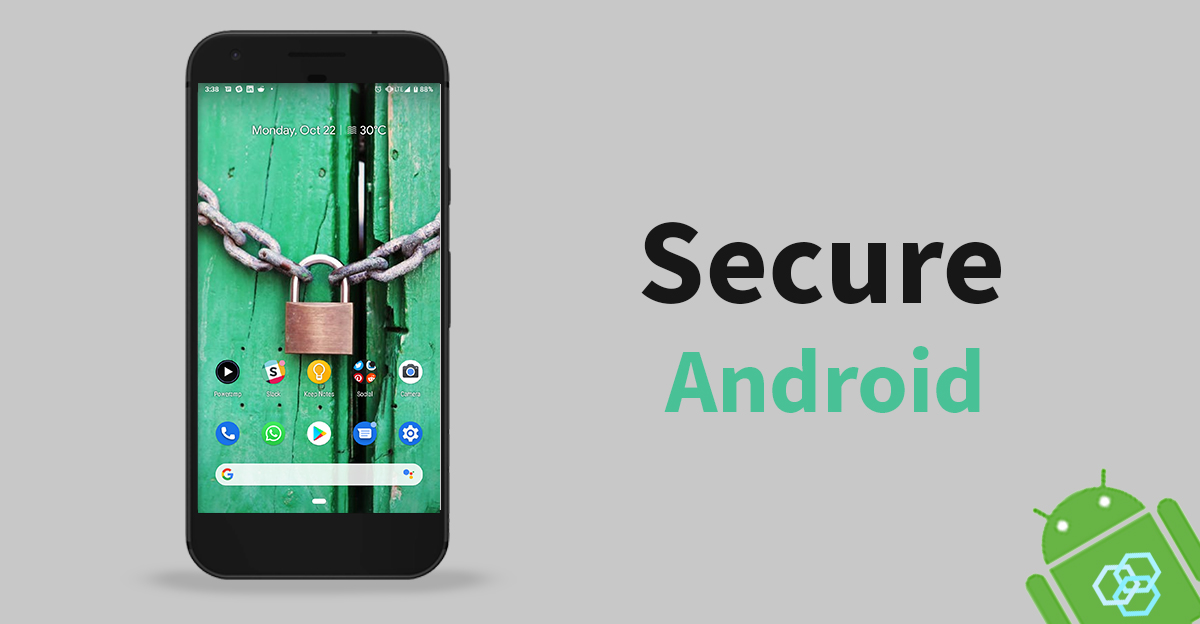Cyber crime is increasing these days and here’s how you can secure Android phone from the hacker attack by applying these doing these 6 practices. Do these things and protect your phone from the hacking!
Why I’m alerting you?
If you take a keen look at cybersecurity statistics, you will be shocked. Every 39 seconds, there is a hacker attack. During this time, where the world is fighting the Covid-19 pandemic, there has been a 300% increase in cybercrime. While this may appear new to you, it is a reflection of what has been happening in the cyber world. Data is valuable, and hackers are doing everything they can to get their hand it.
Millions of malware are created every day, showing just how unsafe you are. Provided you are using the internet and other digital technology, you are under potential threat. Android devices that have millions of users across the globe are under constant threat, and you need to beef up the security of your device to avoid falling prey to cyberattacks.
Here are the best Android security tips to secure Android phone while accessing the sites like piratebay, 918kiss, Amazon.com, downloading of ebooks or music from torrent sites,
 6 Smart Ways to Secure Android Phone from Hacker
6 Smart Ways to Secure Android Phone from Hacker
#1. Use VPNs
Internet connection has become so available that you can access the internet from a coffee shop, commuter bus, and many other places. This has made it possible for people to work remotely and access entertainment such as playing at an online casino. While public Wi-Fi has been a blessing, there are still some concerns.
They are not entirely safe. For one, you have no idea who set up the network: it could be a hacker. Also, Man-in-The-Middle attacks happen mostly while users are on public networks. This does not mean that you cannot use the internet at your favorite coffee shop. There is a safer way of using it, and that is through mobile virtual private networks.
How can VPNs beef up security? What virtual private networks do is make it hard for hackers to eavesdrop what you are doing on the internet. With that, hackers cannot be able to access any information you are sharing or transferring over the internet.
#2. Buy android devices from vendors that release updates quickly
Most are the times that people ignore the updates notifications on their Android devices. This would have been different if they knew how essential updates are when it comes to cybersecurity. While looking for an android smartphone, make sure you buy from a brand that is vigilant about releasing updates.
Remember that millions of malware are created every other day. This means that your smartphone may lack the capability to deal with the new malware. However, when the vendor works to release new security patches through updates regularly, you will be at par with the hackers and fight malware effectively.
As your vendor releases new updates every other day, it is also essential for you to make it a habit to update your device as soon as you can.
#3. Encrypt your smartphone
Encrypting your android phone will go a long way in improving your security. When you encrypt your smartphone, all the data in it is converted to a form in which only persons with the right credentials can read it. This means that even in the event of a successful attack, the data will not be useful to hackers. Even when your smartphone gets stolen, you will have no worries about the attacker using your data.
Android encryption is a pretty easy job. More so, the process is more or less similar across all android devices. For smartphones with the newer versions of Android, all you need to do is go to the settings, select personal, then choose security. From here, you will see the encryption option. Encryption can take some time, and you might want to have your phone fully charged before you get started.
#4. Install anti-virus
While encryption and the other security practices will protect your data, an extra layer of protection is always welcome. Installing an antivirus will help you keep malware at bay. This will help in scanning files before you download them and applications and look for malware and delete them.
Once you have your antivirus, it is also essential to be looking for updates. Just like security patches, some antivirus can only fight known malware. Since new viruses are created every day, the antivirus may not have what it needs to delete it. Updating your antivirus will keep it at par even with the new threats. [Checkout – Bitdefender Total Security Review]
#5. Password hygiene
Passwords by themselves may not be able to fight attackers; they need to be combined with other security practices. Using passwords is one thing, and using them the right way is what will determine how safe your data is. The best password management practices entail the use of different passwords for different accounts. If a hacker gets access to one password, he cannot access all your information.
Writing down passwords in a book or paper is also not smart as the information could land in the wrong hands. You can use password management software to help you keep passwords for your different accounts.
It is also important to use complex passwords and change them regularly.
#6. Two-factor authentication
Through two-factor authentication, you will ensure that only authorized persons access your information. Through verification, which can be done through calls or text, you will allow action on your device and know everything that is going on.
Every person is a target for cyberattacks. Successful attacks can be detrimental in a myriad of ways.
So do not wait to find out: take action and keep your devices safe. The 6 tips above will ensure that your data is safe at all times.

